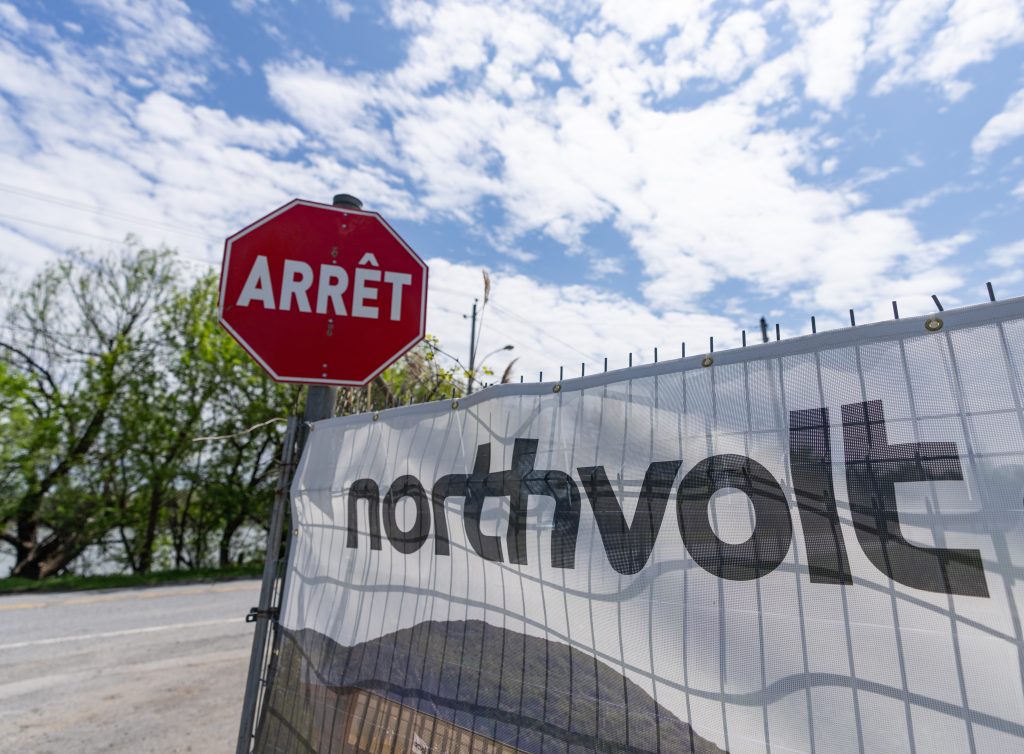Housing crisis continues to deteriorate in Montreal: advocacy groups

Posted June 27, 2024 1:29 pm.
Last Updated June 27, 2024 4:31 pm.
Several Quebec advocacy groups working in mental health, housing, and homelessness are sounding the alarm – saying the housing crisis is deteriorating even more.
With July 1 approaching, they’re asking the Quebec government to set up a transpartisan and interministerial committee, focused on community perspectives to better address the crisis, along with a structural action plan.
According to a press release, living in expensive and inadequate housing can have lasting impacts on one’s physical and mental health including the ability to find a job, buy food and feel safe at the same time.
“When you struggle to avoid ending up on the street, when you try to survive, the complexity of certain steps to find housing is insurmountable,” said Roseline Hébert-Morin from the Plateau Mont-Royal Housing Committee. “It’s terrible to risk ending up on the street despite all the efforts made. People feel abandoned by the system, lose confidence in institutions and so do we.”
The advocacy groups warn that every step not taken will have negative results in the upcoming years.
“What more does it take for the government to take concrete action?” asked Hébert-Morin.
She also says there’s been a 124 per cent increase in service requests over the past five years for her organization.
In Montreal, rent prices have skyrocketed, while salaries and government benefits haven’t caught up, so tenants are left with the consequences.
“The deterioration of access to housing has disastrous consequences on our communities: the housing crisis causes homelessness and prevents people who would like to get off the street,” reads the press release.
PAS de la Rue de Montréal Coordinator and RAPSIM member Céline Duclap said homeless organizations can no longer keep up.
“We served 40 per cent more meals this year, and while last year in May, we welcomed an average of 63 people. This year it was more like 89 people. We also welcome, on average, 25 new faces per month,” she said.
Cédric Dussault is the co-spokesperson of the Regroupement des committees logement et associations de tenants du Québec.
He said that fraudulent eviction tactics, harassment and systematic discrimination are the reasons why housing is unaffordable for the growing population in Quebec.
Dussault also added that evictions are multiplying at a worrying rate.
“Results from Statistics Canada’s latest Canadian Social Survey indicate that three per cent of renters in Canada have been evicted from their homes within the last 12 months, which means that around 45,000 Quebec households have been evicted in the last year,” he explained.
The housing situation in Quebec is responsible for half of all homelessness in the province.
The groups accuse all levels of government of abandoning lower-income tenants because they’ve replaced social housing funding with affordable housing that can’t be obtained by a large proportion of tenants.
“At a time when tenants are becoming poorer at an alarming rate, housing solutions for lower-income households have been reduced to almost nothing,” said Dussault.
The multiple housing committees, mental health and homelessness organizations want stricter rent control measures to help balance the market.
Crisis in all regions
Montreal isn’t the only area facing a housing crisis. Many rural areas are also being impacted.
Edith Lambert, from the Oasis de Lotbinière, confirms this. “In the past year, we ourselves were surprised to see just how many needs there were in our community, and how many people found themselves in a precarious situation,” she explains, giving the example of a man evicted from a gas station toilet where he was sleeping, or a woman who lost custody of her baby because she was unable to provide him with a decent home.
Data from Dussault indicates that from 2020 to 2024, rent increases reached 27 per cent in Montreal, 33 per cent in Quebec City, 44 per cent in Sherbrooke, 50 per cent in Trois-Rivières, 49 per cent in Rimouski and 37 per cent in Saguenay, compared with Inflation of 17 per cent over the same period.
Short- and long-term solutions
In the short term, community groups are calling on Quebec City to tackle soaring costs, move ahead with the rent control they’ve been calling for for years, and put an end to abusive evictions. “Eviction is now the main cause of homelessness in Quebec,” asserts Dussault, who criticizes the three levels of government for their complacency in the face of these all-too-often fraudulent practices.
Denouncing the fact that Quebec is at the back of the pack in terms of non-market housing in Canada, a country that is itself at the back of the pack compared to countries with comparable economies, the organizations reiterate the urgent need, for the long-term, to build social housing sheltered from the ups and downs of the market.
“Affordable” housing exacerbates the problem
Dussault believes that public authorities continue to err on the side of affordable housing. “It’s indecent that all levels of government have completely abandoned lower-income renter households by almost completely replacing social housing funding with so-called affordable housing, which, because it’s subject to an overheated market, is unaffordable for a large part of the renter population.”
Céline Duclap, from Pas de la rue, an organization that works with people aged 55 and over who are homeless or living in precarious conditions, points out that a social assistance benefit “is no longer enough to provide housing today. A single room in a rooming house costs $700. On $800 welfare, there’s nothing left to live on after that.”
Not surprisingly, she says, “We’ve seen our numbers rise and explode in recent months. This is the first time we haven’t had a break after the holidays. Teams are exhausted and organizations are at the end of what they can offer. Some organizations are in agony, in fact.”
-With files from the Canadian Press








